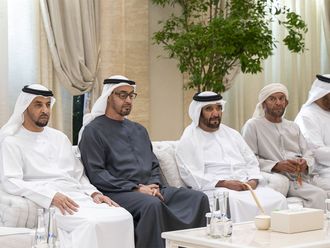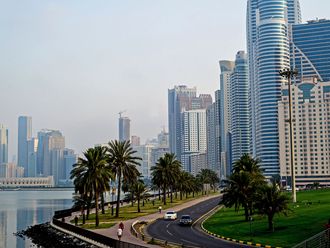London: Shaikh Abdullah Bin Zayed Al Nahyan, UAE Foreign Minister, participated on Wednesday in the opening session of the London conference on Yemen.
Opened by Ali Mujawar, Yemeni Prime Minister and Gordon Brown, British Prime Minister, the meeting seeks to support Sanaa's drive towards development, socio-economic reforms and counter-terrorism.
Yemen has sustained big losses in many vital sectors, especially investment and tourism resulted by terrorist acts, Prime Minster Ali Mujawar said on Wednesday.
In a speech delivered in the London Meeting on Yemen, Mujawar talked about the terrorist and sabotage acts.
The prime minister made reference to one of the most significant challenges facing Yemen, which is the sea piracy and refugees' influx from Somalia and Horn of Africa countries, saying around 800,000 refugees are living in Yemen causing economic, security and social burdens.
Speaking on the government's efforts that will continue to combat terror, Mujawar revealed a comprehensive system Yemen has set forth to eliminating terror including a complete system of legislations and the ratification of combating money laundry and terror financing law as well as the enhancement of coordination with security brotherly and friendly countries.
Mujawar reaffirmed Yemen's commitment to continue political, economic, and social reforms to insure the achievement of stability and prosperity for our people.
Mujawar asserted that the basic problem Yemen is suffering from is essentially an economic one, talking about the government's efforts to tackle the population, educational, energy, water and food security difficulties.
"We would like to reiterate that the basic problem Yemen is suffering from is essentially an economic one including the high population growth rate and low rate of education enrolment as more than 3 million children are not included in the educational system and half of the population are deprived from basic services especially electricity which covers the needs of only 42% of the population, and the percentage of those who get water from the public network is around 26% only and about 32% of Yemeni families face a severe shortage of food security," he said.
"In spite of continuous efforts to tackle those problems through development plans and programs and economic reforms programs, those efforts were not enough to fulfill the required goals. The impact of those problems would certainly be reflected in increasing the numbers of extremists and security defects a matter that should be treated quickly and overcome its devastating effects.
"We, in the Republic of Yemen reaffirm our commitment to continue political, economic, and social reforms to insure the achievement of stability and prosperity for our people. We are also committed to our obligations towards international organizations and donor community. The obligations are related to the continuation of developing the state's institutional build up with the aim of improving the abilities to implement development programs," he affirmed.











